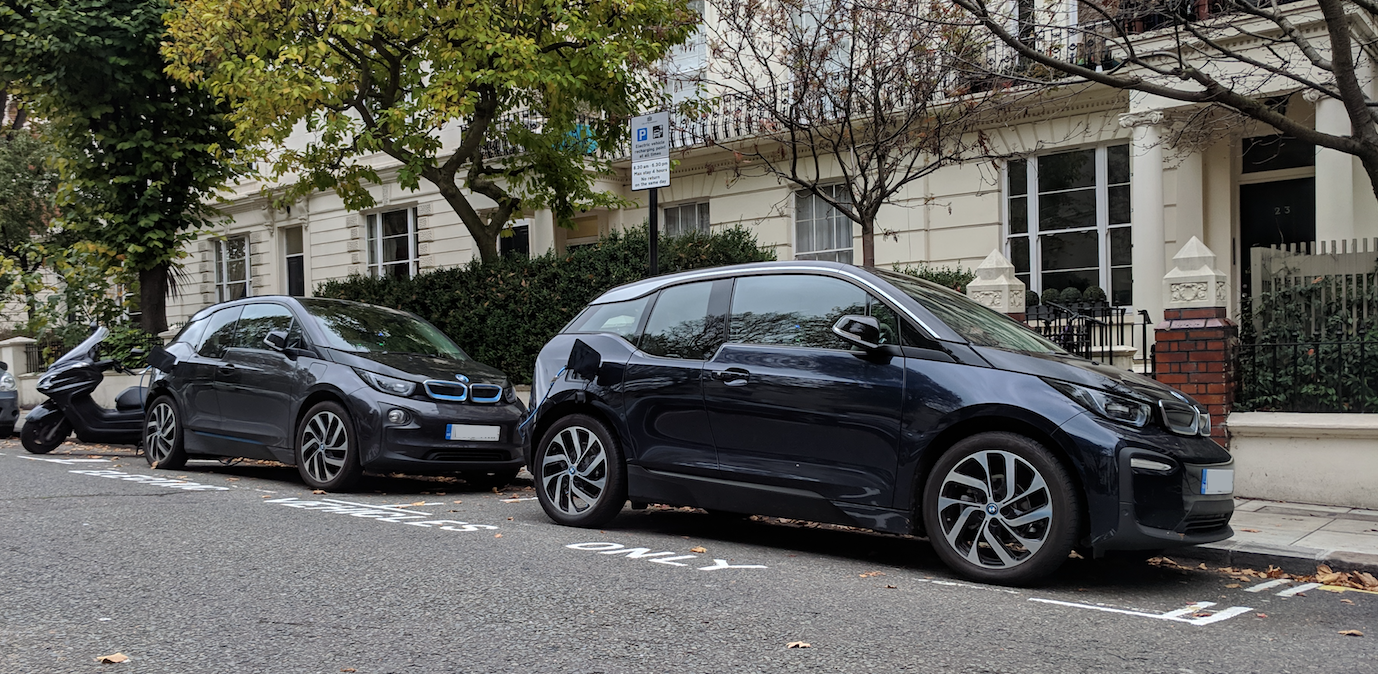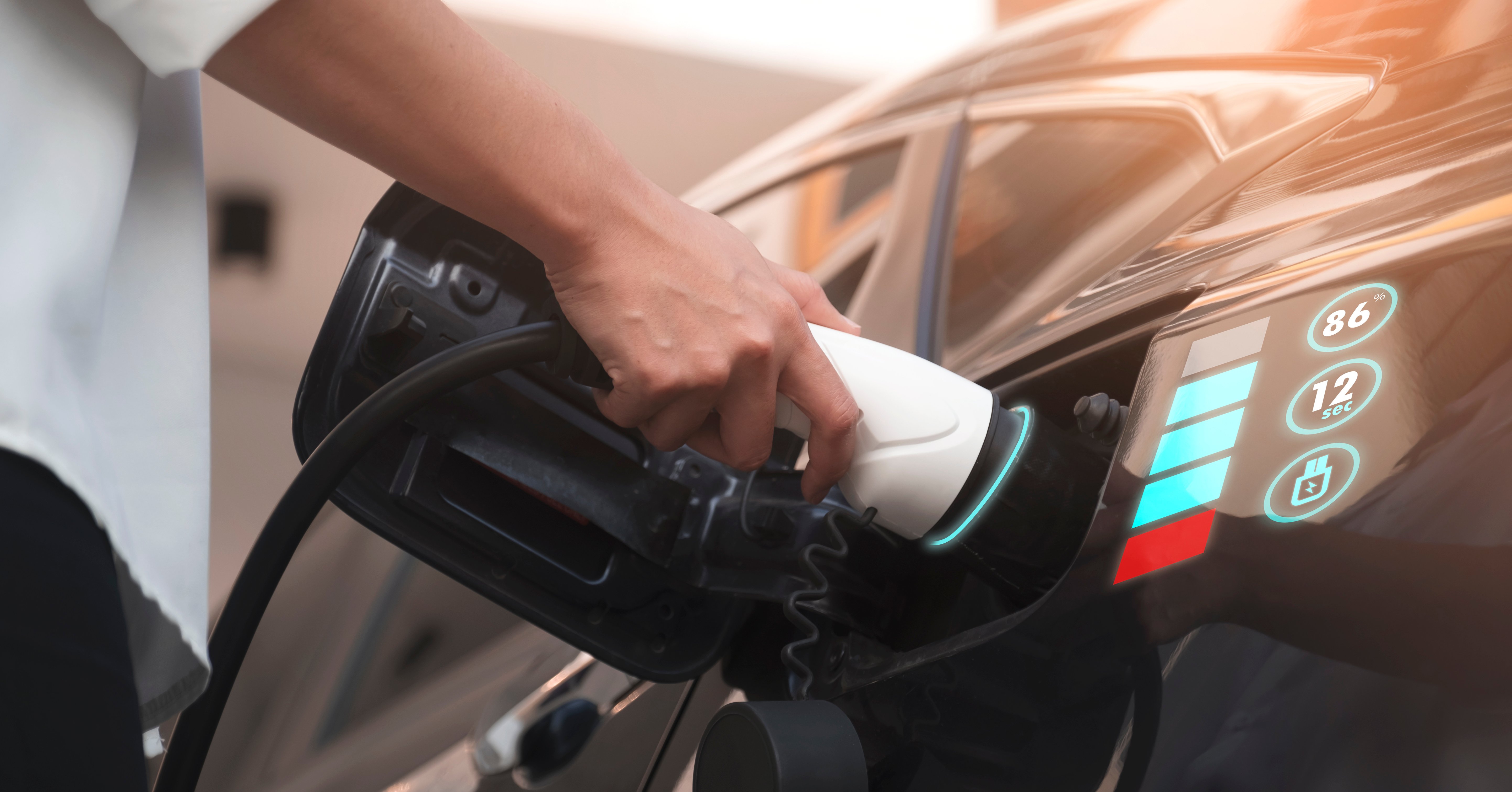Law to standardise charging for electric vehicles proposed in Parliament
by Inline Policy on 20 Nov 2018
A new Bill seeks to standardise electric vehicle charging points and introduce a universal pay-as-you-go-system. We take a look at the commercial and political context and the chances of the Bill becoming a law.
Ten Minute Rule Bills are a way that MPs can introduce proposals for new laws and, while they are rarely passed as a standalone Act of Parliament, the proposals are sometimes incorporated into government legislation or elicit promises of action from the Government of the day. These bills are easily derailed, but as nobody objected to Mr Wiggin’s Bill it will now be debated further in a ‘second reading’ in March 2019.
What does the Bill propose?
The Bill seeks to standardise all electric vehicle (EV) charging points so that people can use them irrespective of the kind of cable or plug they own, or the kind of charging point that they are using. Currently there are numerous kinds of charging connectors, which reflects the fact that battery and charger technology have both developed since EVs were first introduced, with today’s technology delivering much faster charging times. The different charging connectors also reflects that different manufacturers use different kinds of connector for their own technical or commercial reasons.
The secondary aim of Mr Wiggin's Bill is to standardise the payment process for charging electric vehicles. In Parliament he argued that the UK has fallen behind some of its neighbours, such as The Netherlands, in this respect. His Bill is the basis for a universal pay-as-you-go system for electric vehicle charging points across the UK.
Like the physical infrastructure of electric vehicle charging, payment methods have varied widely across different charging networks, with each one requiring the user to pay with a network-specific swipe card. In the past this has made long journeys in electric vehicles complicated, as one might have to carry a wide range of different swipe cards and cables in order to be able to charge one's vehicle, instead of simply paying via credit card. Different networks also operate different schemes, some opting for pay-as-you-go models and others using monthly subscription plans. While the variety provides choice for the consumer, according to Mr Wiggin, it does not make for the most seamless experience for consumers.
The commercial and political context
There is of course a wider commercial context to this, which is the motor industry’s move away from simply building and selling vehicles, towards business models based on providing ‘Mobility-as-a-Service’ (MaaS). Such new business models often incorporate car sharing, ride-hailing, and other vehicles, such as electric bikes and scooters. A key example of this move is the joint venture recently created by Daimler and BMW to bring together their respective MaaS offerings, such as DriveNow, Car2Go, mytaxi and moovel.
Similarly, there is a wider political context around the need to reduce emissions, pollution and congestion, especially in cities. A number of governments are seeking to encourage the take up of electric vehicles through the imposition of emission-linked road charging (such as London’s Ultra-Low Emission Zone), public funding for installation of electric chargers on streets, subsidies for home chargers, tax breaks or subsidies for buyers of EVs, and ultimately bans on the sale of non-electric vehicles.
In the UK, the Government introduced the Automated and Electric Vehicles Act earlier this year, which includes powers to mandate interoperability of charging systems, which the Government has not yet chosen to use. The Government also has powers under the Alternative Fuels Infrastructure Regulations 2017, which implemented a 2014 EU Directive, to ensure that the public have pay-as-you-go access to all publicly available charging points. Mr Wiggin's Bill is designed as an update to the Automated and Electric Vehicles Act which would force the Government to use the powers to mandate interoperability, and to ensure that the 2017 regulations are enforced.
What are the chances of the Bill becoming law?
Overall there is a low chance of the Bill being passed into law, as Private Members Bills seldom succeed and Brexit continues to dominate the domestic agenda. Mr Wiggin’s position as an officer of the European Research Group of hardline pro-Brexit Conservative MPs is also unlikely to win him friends in the current Government. Furthermore, the timescale for Ten Minute Rule Bills can be uncertain with some Bills being postponed numerous times, meaning the Second Reading might well happen a long time after the currently scheduled date of 8 March 2019.
On the other hand, Mr Wiggins seems to have garnered cross-party support for his Bill, including support from fellow Conservative MPs. Although the precise text of the Bill has not yet been published, because it is seeking to implement reserved powers that already exist in law, the drafting of the text is relatively straightforward. Electric mobility is one of the issues that has managed to achieve some cut-through in Westminster since the 2016 referendum, with the publication of the Government's Road to Zero strategy and numerous Parliamentary questions raised in the House of Commons and the Lords on the subject.
Moreover, with a minority government, backbencher MPs have significantly more ability to force the Government to amend or adopt legislation. Since the 2017 election we have seen two significant examples of this happening. The first was Labour MP Stella Creasey’s proposals on NHS funding for abortion services for residents of Northern Ireland. The second was Liberal Democrat MP Wera Hobhouse’s Bill on 'upskirting'. Both backbench proposals gained sufficient support from individual Conservative MPs to force the Government to introduce the legislation being proposed.
So, there is a slim chance that Mr Wiggin’s proposals will be taken forward by the Government if it attracts sufficient support from fellow MPs. Even if it is not, this remains an effective way for Mr Wiggin to raise the issue and for interested parties to lobby Mr Wiggin, the Government and other MPs on the issue.
Topics: Electric vehicles, Transport, Mobility, David Abrahams





.jpg)

Comments